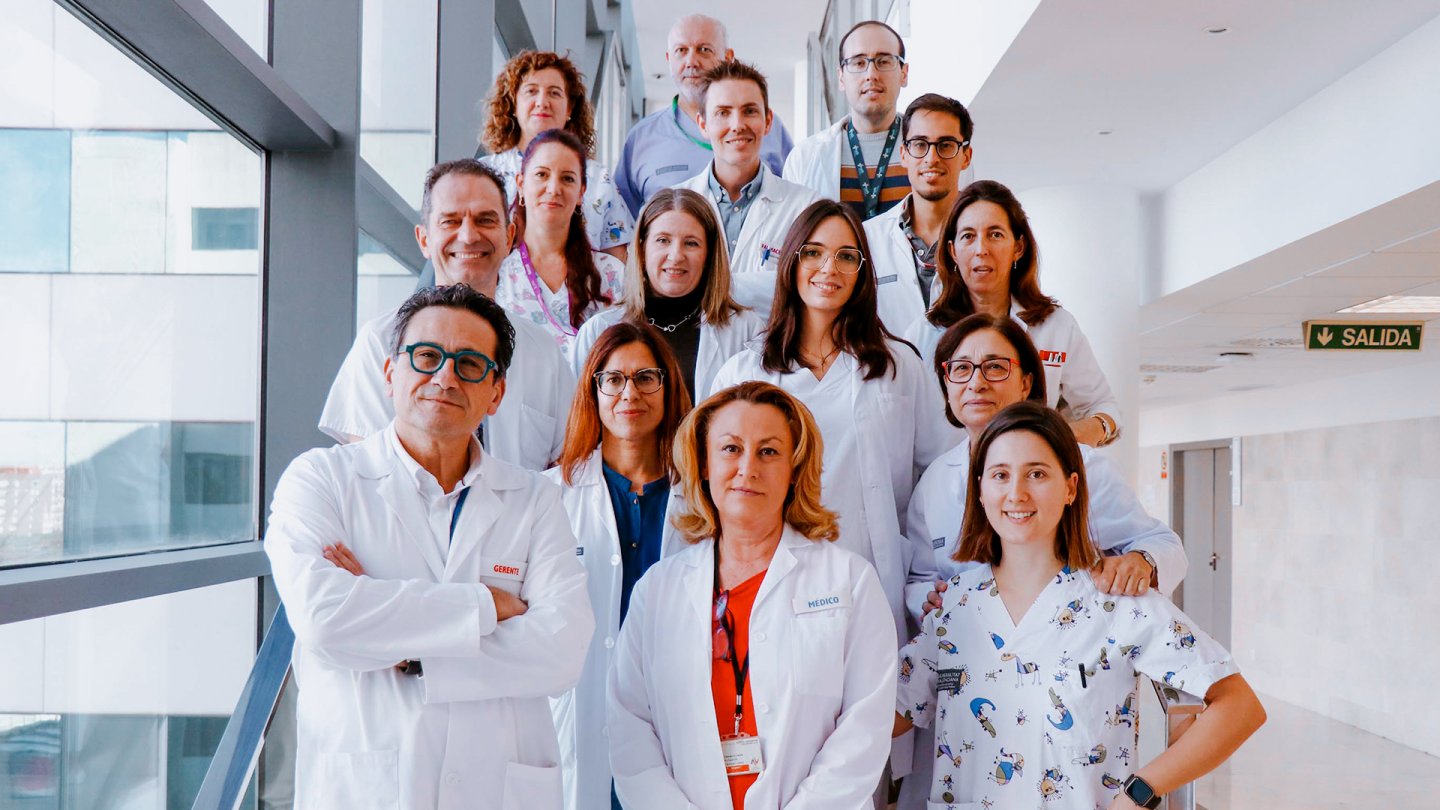News
La Fe Investigates Two In Vivo Gene Therapies in Children with Duchenne Muscular Dystrophy for the First Time in the Valencian Community
Children participating in the trial have received a reduced version of the defective gene delivered through a virus.
The aim is to mitigate and slow down the progressive muscle deterioration caused by this severe muscular dystrophy.

The Neuromuscular Diseases Unit of the La Fe University and Polytechnic Hospital is conducting two clinical investigations with in vivo gene therapy in children with Duchenne muscular dystrophy. This marks the first time these experimental treatments are being applied in the Valencian Community.
Duchenne muscular dystrophy is a rare genetic disease caused by mutations in the dystrophin gene, an essential protein for cushioning the tension generated during muscle contraction.
This disease is severe and has a significant impact as it causes progressive and disabling muscle weakness, as well as cardiac and respiratory problems that shorten life expectancy. It begins in early childhood with motor and/or psychomotor and cognitive development issues. Over time, patients develop respiratory and cardiac dysfunction.
Currently, there is no cure for this condition, making it a race against time to slow down or moderate the neuromuscular deterioration it causes. At La Fe, a multidisciplinary team led by the Neuromuscular Diseases Unit is participating in two international clinical trials, collaborating with two other Spanish centers.
Between last year and this year, La Fe has administered gene therapy treatments to patients aged 5 to 7. Specifically, two experimental drugs with a similar mechanism of action are being studied.
"The children have received a non-harmful virus intravenously, carrying the genetic material they have defective and spreading it through the body's cells, especially in the muscles and heart, the organs mainly affected. Over the next five years, they will be monitored to determine if the treatment is effective and safe," explained the researcher specialized in pediatric neurology and coordinator of the pediatric area of the Neuromuscular Diseases Unit at La Fe, Inmaculada Pitarch, who is also part of the Research Group on Neuromuscular Pathology and Ataxias of the IIS La Fe and the CiberER U763 of the Carlos III Health Institute.
One of the two treatments under investigation at La Fe recently received accelerated approval for use in children aged 4 to 5 in the United States, which has a different and independent drug authorization system from European agencies.
"The trial with this drug, delandistrogene moxeparvovec-rokl, in patients with Duchenne muscular dystrophy aged 4 to 5, has shown an increase in the expression of the deficient dystrophin protein in this disease, which could have a clinical benefit," indicated Nuria Muelas, a neurologist at the Neuromuscular Diseases Unit of La Fe. "Therefore, a phase 3 trial with the same medication to treat children with this condition aged 4 to 7 is also underway, in which we are also participating," added the researcher from the Research Group on Neuromuscular Pathology and Ataxias of the IIS La Fe and the CiberER U763 of the Carlos III Health Institute.
"Recently, results of this study at week 52 have been reported, indicating improvement in some motor parameters in treated patients compared to the placebo group, which is promising," emphasized Dr. Muelas, adding that there are still many aspects to investigate, "including potential adverse effects and long-term efficacy."
Pioneering Work by a Multidisciplinary Team
This is the first time that La Fe Hospital has applied in vivo gene therapy treatments in the field of pediatrics. In adults, gene therapy has been used since 2020 for the treatment of oncohematological diseases.
In the case of adults, it involves ex vivo gene therapy with CAR-T, meaning cells are extracted from the patient, modified in the laboratory, and then re-implanted once healthy.
In contrast, what has been done in pediatrics under the direction of Emilio Monteagudo is in vivo gene therapy, where the healthy genetic material has been administered directly to the children through a harmless vector or virus.
"These research efforts mark a milestone in the history of our hospital, which has administered this type of therapy for the first time, even though it is in the experimental phase; it is the only hope for some families," highlighted the manager of the Valencia La Fe health department, Jose Luis Poveda.
The administration of this therapy has been possible thanks to the coordination of professionals in neurology, pediatrics, cardiology, nephrology, digestive medicine, rehabilitation, hospital pharmacy, and both medical and nursing and physiotherapy staff.
The next step is to continue advancing toward a better and more standardized approach in the management and treatment of these diseases with the development of Standard Operating Procedures, training programs such as clinical simulation, or the creation of a clinical practice guide. To achieve this goal, a clinical commission has been established at La Fe, bringing together professionals from various specialties involved in rare diseases.







